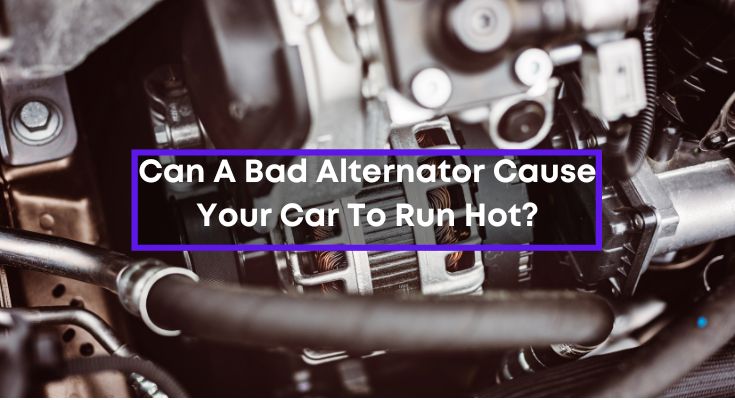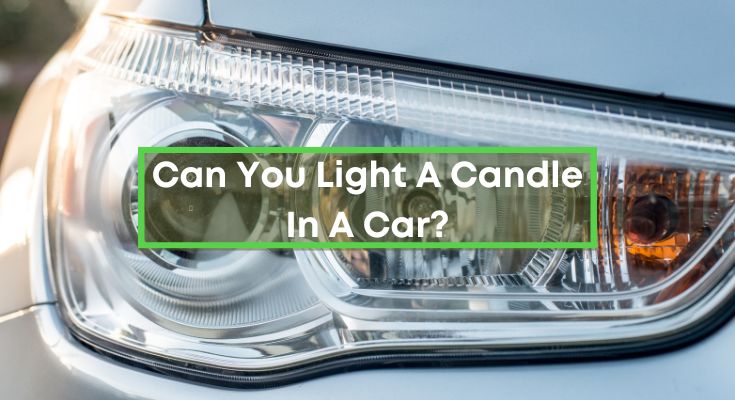Can A Bad Alternator Cause Your Car To Run Hot?
A bad alternator can cause your car to run hot because it is not providing the proper amount of power to keep the engine cool. When the engine is running hot, it can cause the alternator to overheat and fail. This can lead to engine damage or a fire. A bad alternator can definitely cause your car to run hot. If the alternator is not providing the proper amount of power to the engine, then the engine has to work harder to make up for the lost power, which in turn causes the engine to run hotter than normal.
Additionally, if the alternator is not providing enough power to run all of the car’s accessories, like the air conditioner, then the engine has to work harder to make up for that lost power as well, which can also cause the engine to run hot.

Can a bad alternator cause your car to overheat?
A bad alternator can cause your car to overheat because the alternator is responsible for cooling the engine by circulating coolant through the radiator. If the alternator is not working properly, the engine will overheat.
How can you tell if your alternator is going bad?
If your alternator is going bad, you may notice that your car’s headlights are dimming or flickering, your car is having trouble starting, or you’re experiencing electrical problems. If you notice any of these symptoms, it’s important to take your car to a mechanic to have it checked out.
What are the symptoms of a failing alternator?
A failing alternator can cause a car to stall and fail to start. Other symptoms include dimming or flickering lights, problems with the audio system, and the car’s engine running rough. If the alternator is not working properly, the battery will not be able to recharge, and eventually the car will not be able to start.
How do you prevent your alternator from going bad?
The alternator is responsible for supplying power to the electrical system of your vehicle while the engine is running. If the alternator fails, the engine will still run, but the electrical accessories will not work. There are a few things you can do to prevent your alternator from going bad.
First, make sure to keep the alternator clean. Dirt and debris can build up on the alternator and cause it to overheat. Second, keep the battery terminals clean. Corroded battery terminals can prevent the alternator from charging the battery. Finally, have the alternator checked regularly by a mechanic to ensure that it is in good working condition.
How to extend the life of your alternator
The alternator is a vital component in keeping a car running. Here are a few tips on how to extend its life:
1. Keep the alternator clean. An alternator that is free of debris and dirt will run more efficiently and last longer.
2. Inspect the alternator regularly. Check for signs of wear and tear, and have any necessary repairs or replacements done as soon as possible.
3. Make sure the alternator is properly lubricated. This will help reduce friction and wear, and keep the alternator running smoothly.
4. Avoid overloading the alternator. If the alternator is taxed too much, it can overheat and be damaged.
By following these simple tips, you can help extend the life of your alternator and keep your car running smoothly.
How to troubleshoot a failing alternator
A failing alternator can be a serious problem for a car. If the alternator is not working, the car will not be able to start or run. There are a few things that can be done to troubleshoot a failing alternator.
The first thing to do is to check the battery. If the battery is dead, it could be the reason the alternator is not working. If the battery is not the problem, the next thing to check is the alternator belt. If the belt is loose or broken, it will need to be replaced.
If the battery and alternator belt are both fine, the next thing to do is to check the alternator itself. If the alternator is not working, it will need to be replaced.
Alternator maintenance tips
It is important to keep your alternator in good working order, as it is responsible for charging the battery and powering the electrical system while the engine is running. Here are some tips for maintaining your alternator:
1. Check the alternator belt regularly for wear and tension. The belt should be tight and show no signs of fraying.
2. Keep the alternator and battery clean and free of corrosion. This can be done by regularly cleaning the terminals with a wire brush.
3. If your alternator is not charging the battery properly, have it checked by a qualified mechanic.
4. Always replace the alternator with one of the same amperage rating. A higher amperage alternator may damage your electrical system.
By following these tips, you can help ensure that your alternator will continue to work properly for many miles to come.
Can a bad alternator cause battery to get hot?
A bad alternator can lead to a number of problems with your car, battery included. If your alternator isn’t working properly, it won’t be able to recharge your battery as it’s supposed to. This can cause your battery to work harder than usual, which in turn can make it overheat. In addition, a failing alternator can also cause your car to consume more fuel than usual, which can also lead to your battery overheating. If you notice that your car’s battery is getting hot, it’s important to have it checked out by a mechanic to see if your alternator is to blame.
How does a car act when the alternator is going out?
If the alternator is going out, the car will eventually lose power and stall. The battery will also be drained, so the headlights and other electrical accessories will dim or turn off.
What are the warning signs of an alternator going bad?
If your car is having difficulty starting or staying running, it may be a sign that the alternator is going bad. Alternators are what provide power to the car’s battery, and if they are not working properly, the battery will quickly become drained. Other warning signs of a failing alternator include dimming headlights or dashboard lights, strange noises coming from the engine, and a burning smell coming from the engine compartment. If you notice any of these signs, it is important to take your car to a mechanic to have it checked out as soon as possible.
Can the alternator affect the heat?
The alternator is responsible for providing power to the vehicle’s electrical system, and it can also affect the heat. If the alternator is not working properly, it can cause the engine to overheat. The alternator can also affect the heat if it is not charging the battery properly.
Conclusion
A bad alternator can cause your car to run hot because it cannot properly charge the battery, which can lead to the engine working harder and overheating. While a bad alternator can cause your car to run hot, it is not the only potential cause. There are a number of potential causes of a car running hot, so if your car is running hot, it is best to take it to a mechanic to have it checked out.






